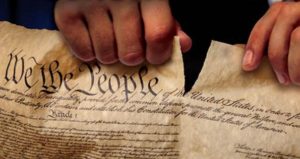
However, while the exclusionary rule is one of the most powerful tools that a criminal defense attorney can use to protect people who have had their civil rights violated by overzealous law enforcement, it is also one of the problems with the criminal justice system and the problem in the U.S. with police overreaching and misconduct.
The Good Side of the Exclusionary Rule: Protection from Constitutional Violations

The Bad Side of the Exclusionary Rule: No Deterrence
While the exclusionary rule can turn a difficult case into an easy one by excluding crucial pieces of evidence, if they were gathered in an unreasonable search or seizure in violation of the Fourth Amendment, its impact is limited to that particular case. The evidence is thrown out, but the police officer who violated your civil rights is left unaffected. In fact, he or she often never even learns that what they did violated your Constitutional rights. Without a penalty or any other kind of repercussion for violating your Fourth Amendment rights, there is nothing stopping – or even slowing down – a police officer from going back out on the streets and doing the exact same thing to someone else.
Because using the exclusionary rule in one case does not deter police from going right back out and violating someone else’s rights, the rule fails to effectively address the issue of overreaching law enforcement and unreasonable searches and seizures. If the problem that the U.S. is having with police misconduct is any indication, this is becoming a serious issue.
The Federal Criminal Law Center Fights for Your Rights
If you have been charged with a federal crime, contact the Federal Criminal Law Center. Our attorneys have years of experience fighting for your rights in the face of serious federal charges across the criminal spectrum, from white collar crimes to juvenile offenses.

